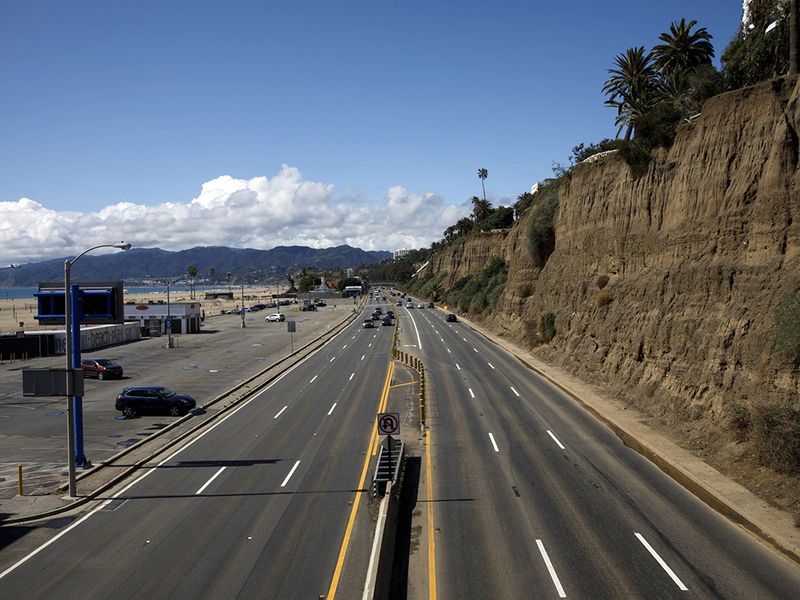
Tesla Inc. is proffering a decidedly different take on the coronavirus-related shutdowns CEO Elon Musk called “fascist” and sued over weeks ago by suggesting they may bolster the case for banning internal-combustion engine cars.
In its 2019 Impact Report released Monday, Tesla pointed to sharp improvements in air quality in recent months tied to restrictions on business and travel aimed at containing the spread of COVID-19. The company said the drop in pollution could embolden governments that already have been making plans to eventually ban vehicles that run on fossil fuels.
“It is not hard to imagine that many cities could become electric-only in the near future as they begin to witness the impact that ICE vehicles have on air quality,” Tesla said in the report.
Tesla’s rosy view is consistent with the Energy Information Agency’s forecast in April that emissions from cars, power plants and other sources may fall 7.5 percent this year as a result of people sheltering at home. But it’s a 180-degree turn from comments its CEO made while feuding with California officials over reopening the company’s lone U.S. car plant.
“This is fascist. This is not democratic, this is not freedom,” Musk said on Tesla’s first-quarter earnings call in April. In May, he threatened to relocate the carmaker’s headquarters and move its manufacturing out of California before flouting a local health order and restarting production. Tesla has since dropped its lawsuit against Alameda County, where its auto factory is located.
Several European cities have moved to curb use of diesel vehicles in the wake of revelations that Volkswagen Group rigged its engines to conceal emission of harmful pollutants. It’s now illegal to drive some diesel cars in Madrid, Paris or Brussels, while Germany has banned older diesel autos. In the U.K., Bristol will impose a complete city center ban starting next year.
In the U.S., Seattle plans to ban sales of combustion cars by 2030. California introduced draft legislation in late 2018 to eliminate fossil fuel-burning vehicles statewide by 2040. Other states have similar plans from 2050.